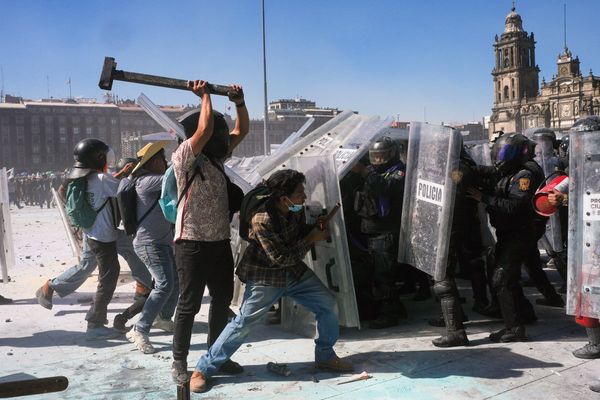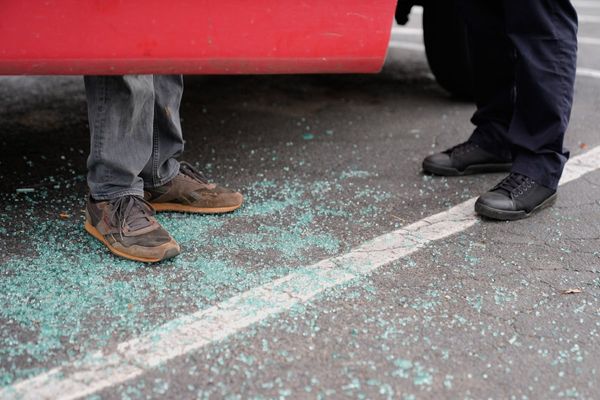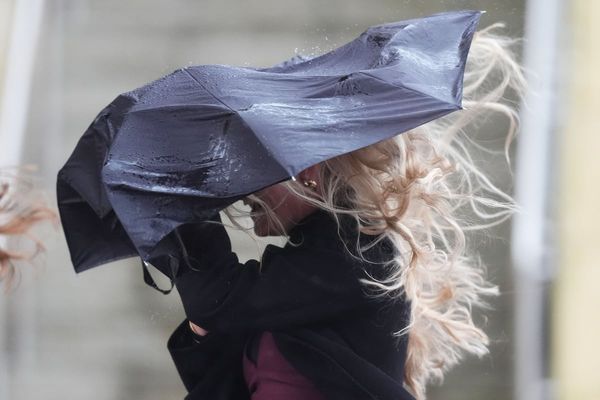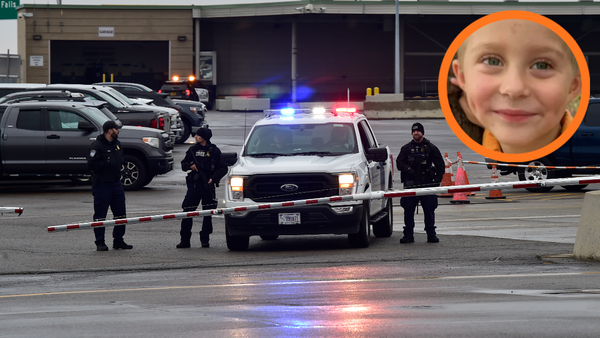
Women in Ukraine are increasingly vulnerable to sexual violence 12 months after Russia invaded the country, with reports of abuse on the rise, according to a leading humanitarian organisation in the country.
Women fleeing from bombed houses and their home towns are reporting attacks occurring in the home and in communal shelters, said Marysia Zapasnik, the Ukraine country director for the International Rescue Committee.
“We are noticing higher levels of gender-based violence, that is related to displacement,” she said. “So support networks are not there and levels of stress among all members of the community, unfortunately, sometimes manifests itself in gender-based violence. So in collective shelters we’re noticing higher levels of that, as well as having cases referred to us.”
The IRC is focusing its relief efforts in the east and south-east of Ukraine where there is heavy shelling and fighting. It estimates that 17.6 million people in the country are in urgent need of humanitarian aid, while 6 million have been internally displaced.
Zapasnik gave a recent example of a woman who was attacked in a collective shelter and fled, grabbing only her handbag and a jumper. After being found by police wandering the streets in her slippers, she was referred to the IRC which provided psychological support, money to buy clothes, and organised access to a safe house.
Zapasnik said sexual violence and domestic abuse were increasing. “High levels of stress tend to increase levels domestic violence as well,” she said. “It’s a very sensitive topic and it’s something that that wasn’t discussed in Ukraine before the war so it is hard to discuss openly. We need to make sure that we do everything we can to protect women, including those that we’re working with.”
She warned that women who remained in the country were also increasingly bearing most of the caring burden for children who could not attend school and older relatives who would normally receive help from the state. She said 750 Russian attacks on healthcare facilities had been recorded and verified, while 3,000 schools had been either severely damaged or destroyed. The long-term psychological impact on women “holding it together” for their families could be devastating, she added.
“In the bomb shelters when the sirens are going off, it’s mothers playing with their children trying to make it a fun experience, bringing their favourite toys. The women, the mothers of Ukraine are incredibly brave and resilient – but they are struggling a lot,” she said.
Most schooling was now online, but made more difficult because of Russian bombing of energy infrastructure, she said. Many women who still had jobs were often not able to work because they had to look after children at home. In many parts of the country, services necessary for everyday survival such as heating, running water, sewage and power were lacking, she said.
“All of those issues are compounding the stress and trauma that women are experiencing,” she said. “It has been a year now, and many things have become normal, which definitely shouldn’t be normal … the need for mental and psychological support for people in Ukraine will remain for many years to come.”
Zapasnik recalled speaking to one woman from the southern port city of Mykolaiv, which has been under relentless Russian attack since March, who was in tears describing the intense fear of not being able to protect her children. “She noticed that one of her daughters was looking at her, and she immediately wiped the tears away, desperate not to let her daughters see that she was upset,” said Zapasnik, herself holding back tears. “I found that very moving.”
After a year of war, the people who remain in Ukraine have often depleted their savings and are reducing spending on non-essential food items and healthcare, she added. The IRC is running a winter programme providing blankets, sleeping bags, stoves, fuel and basic repair materials for bombed homes, as well as English and Ukrainian classes and even yoga, often in basement locations.
Olga, 57, who was helped by the IRC in Mykolaiv, said the trauma of the war was compounded every day. “You go to bed and you’re afraid, you wake up and you pray. You get up and you wait to see what happens next. We don’t go to work. We get up and we stay home … I am waiting to see if it hits from above or not, and how it ends. I pray that our guys will all survive,” she said.
Before the war, Olga said, they would go out and talk to people, but that had stopped. “We stopped living, we go to bed and wait to wake up or not,” she said. “What’s changed? Everything has changed.”
In the UK, Rape Crisis offers support for rape and sexual abuse on 0808 802 9999 in England and Wales, 0808 801 0302 in Scotland, or 0800 0246 991 in Northern Ireland. In the US, Rainn offers support on 800-656-4673. In Australia, support is available at 1800Respect (1800 737 732). Other international helplines can be found at ibiblio.org/rcip/internl.html
In the UK, call the national domestic abuse helpline on 0808 2000 247, or visit Women’s Aid. In Australia, the national family violence counselling service is on 1800 737 732. In the US, the domestic violence hotline is 1-800-799-SAFE (7233). Other international helplines may be found via www.befrienders.org







